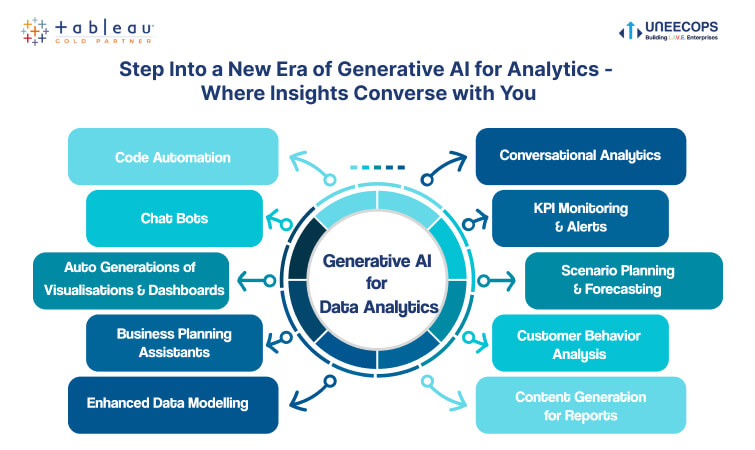Supply chain management (SCM) is a complex process that presents numerous challenges for logistics companies. From lack of transparency and synchronisation to inventory management and demand forecasting, logistics companies face a range of obstacles that can impact their operations and customer satisfaction. However, with the advent of supply chain analytics, logistics companies are now able to leverage data-driven insights to tackle these challenges head-on and optimise their supply chain processes.
How Supply Chain Analytics help the Logistics Companies
Implementing supply chain data analytics offers numerous benefits for logistics companies. By leveraging data-driven insights, logistics companies can:
- Enhance Planning and Scheduling: Real-time insights about inventory levels and consumer demand enable logistics companies to better plan and schedule their supply chain events, ensuring timely delivery and reducing stockouts.
- Optimise Resource Allocation: By analysing information on production materials and purchase costs, logistics companies can optimise their supply flowchain, lower their expenses, and operate at a higher potential.
- Improve Customer Satisfaction: Real-time data and analytics enable logistics companies to enhance their logistics operations, providing accurate tracking information, reducing delivery times, and ultimately increasing customer satisfaction.
- Streamline Inventory Management: Supply chain data analytics solution allows logistics companies to optimise inventory levels, minimising excess stock and reducing the risk of stockouts, improving overall inventory management and cost-efficiency.
Applications of Supply Chain Analytics
Supply chain analytics can be applied at several steps in the logistics SOPs (Standard Operating Procedures), providing valuable analysis and optimization opportunities. Here are some key applications of supply chain data analytics examples for logistics companies:
1. Demand Forecasting and Planning
Supply chain processes and analytics enable logistics companies to determine and calculate upcoming market requirements depending on previously observed data and market trends. Through analysing customer buying trends along with the outbound touchpoints like economic indicators, as well as social media sentiment, logistics companies can make accurate demand forecasts, optimise inventory levels, and improve production planning.
2. Route Optimization and Transportation Management
Supply chain analytics software enables logistics companies to optimise their transportation routes based on real-time data, including traffic conditions, fuel costs, and delivery schedules. By interpreting this information, logistics companies can reduce their expenses on transportation, foster speedy reach to the market, and strengthen their average logistics potential.
3. Warehouse Administration and Inventory Optimization
Supply chain analytics provides insights into warehouse operations, allowing logistics companies to optimise warehouse layouts, inventory placement, and storage capacity. By analysing data on inventory turnover, order volumes, and lead times, logistics companies can streamline warehouse operations, reduce carrying costs, and improve inventory management.
4. Distributor Efficiency and Risk Management
Supply chain analytics helps logistics enterprises in measuring the efficiency of a distributor through several indices, like timely access, values provided, and expenses. By analysing supplier data, logistics companies can identify underperforming suppliers, mitigate supply chain risks, and make informed decisions about supplier relationships.
Implementing Supply Chain Analytics: Best Practices
To effectively implement supply chain analytics, logistics companies should consider the following best practices:
- Data Integration: Ensure that data from various sources within the supply chain, such as ERP systems, transportation management systems, and supplier databases, is integrated into a centralised data repository. This enables comprehensive data analysis and presents a full display of the supply flow.
- Collaboration and Stakeholder Engagement: Involve key stakeholders, including IT, operations, and logistics teams, in the implementation of supply chain analytics. Partnerships and cross-interactions are vital in the successful adoption and utilisation of analytics insights.
- Data Quality and Governance: Establish data quality standards and governance processes to ensure the accuracy, reliability, and consistency of supply chain data. Regular data cleansing, validation, and maintenance are essential for reliable analytics outcomes.
- Continuous Improvement: Supply chain analytics is an ongoing process. Consistently check as well as refine analytics models, data sources, along with the other indicators for aligning to the evolving market demands and dynamics. Leverage feedback from stakeholders to drive continuous improvement and optimization.
- Utilise Innovation: Implement robust analytical instruments which can operate huge amounts of supply chain information, at the same time giving the output for real-time reports. Incorporate future technologies such as AI, ML, along with predictive analytics to further enhance the capabilities of your supply operations.
By adopting supply chain analytics, logistics companies can utilise the full power within their supply processes. With data-driven insights, you can optimise your operations, increase productivity, and build unbelievable relationships with your customers. Analytics is a powerful tool that empowers you to create your own blue ocean and grow in the current vigorous market.
In conclusion, supply chain data analytics is revolutionising the logistics industry by providing valuable insights and optimization opportunities. With the right implementation strategies and best practices and right technology partner, logistics companies can harness the power of supply chain data analytics and unlock efficiency and optimization throughout their operations.
Uneecops help businesses fast-track their analytics journey with its data scientists and agile business intelligence services. We assist businesses in effortlessly leveraging data transformation – with speedy time to value, easy installations, and ongoing support. We are your partners in data analytics and growth!







